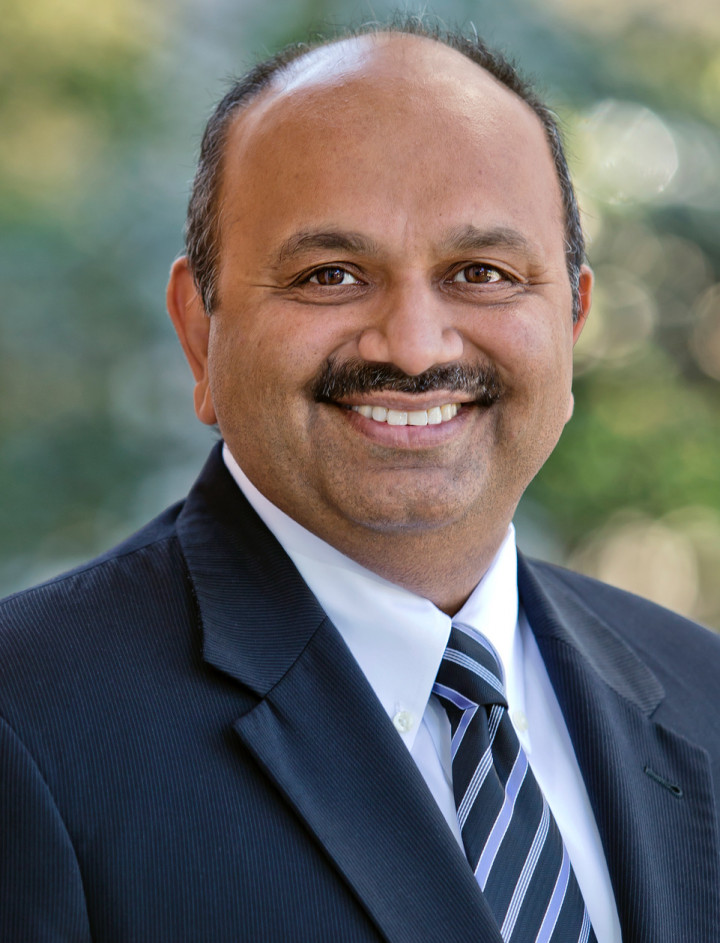Amitabh Varshney to Serve on Steering Committee for National Advisory Council on Advancing XR Technologies
A leading expert in immersive technologies from the University of Maryland has been selected to serve on a steering committee for a national advisory council dedicated to advancing policy and practical considerations involving virtual, augmented and mixed reality—collectively known as “extended reality” (XR) technologies.
Amitabh Varshney, interim vice president for research and dean of the College of Computer, Mathematical, and Natural Sciences, joins former government officials and other specialists from academia and industry on a steering committee for the Future of XR Advisory Council (XRAC).
The launch of the XRAC was announced on October 21, in Washington, D.C., by the XR Association, a nonprofit trade association representing the growing ecosystem of XR technology companies across the U.S.
The steering committee will help guide the XRAC as it begins work on bringing greater cohesiveness and collaboration between industry stakeholders that include headset manufacturers, technology platform developers, component and peripheral companies, internet infrastructure companies, enterprise solution providers, and corporate end-users.
“We’ve only begun to scratch the surface of what is possible with XR technology, and as we look toward the future, there are critical questions and conversations to have about this technology’s impact on people, the economy, industry and society," said Elizabeth Hyman, CEO of the XR Association. “We’ll strive to make sure that XR is safe, inclusive, and respectful for all users. The XRAC will play an important role in that effort.”
In addition to Varshney, the XRAC steering committee includes senior-level executives from tech giants Facebook, Microsoft, Accenture and Google. The steering committee will also receive input from former officials from the Federal Trade Commission and the White House Office of Science and Technology Policy.
“I am honored to join this collaborative effort that will help guide the future of immersive technologies,” said Varshney. “The insight and forward-looking ideas from this diverse group of researchers, policy makers and industry leaders will offer immense opportunities as XR technologies continue to transform how we approach and experience activities involving education, health care, professional training, and the visual and performing arts.”
Varshney has long been a noted researcher and educator in immersive technologies, with extensive experience forming multidisciplinary groups to address significant scientific and societal challenges using XR applications.
In 2016, he taught the University of Maryland’s first course in virtual and augmented reality and spearheaded a campus-wide effort to launch a new major—Immersive Media Design—which took flight this fall. It’s the only undergraduate program in the country that synthesizes art with computer science to develop immersive media.
He’s also a founding co-director of the Maryland Blended Reality Center, a strategic partnership that joins computing experts at University of Maryland, College Park, with critical care specialists at the University of Maryland, Baltimore, to develop virtual and augmented reality-based tools in multiple high-impact areas, including critical-care patient diagnostics, human anatomy education, non-opioid pain management, and implicit bias training.
Varshney is an elected fellow of IEEE, an inaugural member of the IEEE Visualization Academy, and a recipient of the IEEE Technical Achievement Award and an NSF CAREER award. His B.Tech. is from the Indian Institute of Technology, Delhi, and his Ph.D. is from the University of North Carolina, Chapel Hill.
The Department welcomes comments, suggestions and corrections. Send email to editor [-at-] cs [dot] umd [dot] edu.
